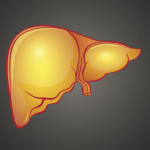People with Child-Pugh A liver cirrhosis, or a milder case, can safely undergo hepatitis C virus (HCV) treatment with AbbVie’s Viekira regimen (ombitasvir/paritaprevir/ritonavir; dasabuvir) or Technivie (ombitasvir/paritaprevir/ritonavir), with or without ribavirin.
Viekira contains the same medications as Technivie, plus the drug dasabuvir.
Publishing their findings in the Journal of Hepatology, researchers conducted an analysis of 12 Phase II or III clinical trials of the two regimens that included individuals with Child-Pugh A cirrhosis.
The analysis included the PEARL-1, AGATE-I and -II and GIFT-I and -II trials, in which people with genotype 1b, 2 and 4 of hep C received Technivie for 12, 16 or 24 weeks; the TURQUOISE-II -III and -IV, TOPAZ-I, -II and -III and TOPAZ-VA trials received the Viekira regimen for 12 or 24 weeks. In some treatment arms in these trials participants received ribavirin.
The pooled safety analysis included 1,066 people with cirrhosis. A total of 31.1 percent were treated with Technivie with or without ribavirin while 68.9 percent were treated with the Viekira regimen with or without ribavirin. A total of 32.5 percent of the cohort members were female and 17.4 percent were age 65 or older. The median body-mass index was 27.2. Eighty-two percent of the cohort had genotype 1 of hep C. Forty-five percent were being treated for the virus for the first time.
According to the Child-Pugh scoring system, a score of 5 or 6 indicates Child-Pugh A cirrhosis, or an 85 percent chance of surviving for two years; a score of 7 to 9 indicates Child-Pugh B cirrhosis, or a 57 percent chance of surviving for two years; and a score of 10 to 15 indicates Child-Pugh C cirrhosis, or a 35 percent chance of surviving for two years.
Before treatment, 85.6 percent of the study cohort had a Child-Pugh score of 5, 12.5 percent had a score of 6 and 1.8 percent had a score of 7 or 8.
The rates of indicators of decompensated, or more advanced, cirrhosis were very low: a respective 0.3 percent, 0.4 percent and 8.5 percent had a history of ascites, hepatic encephalopathy or esophageal varices.
On treatment, only a respective 5.3 percent and 2.2 percent of the study cohort experienced serious adverse health events that led them to stop treatment.
Just 13 individuals, or 1.2 percent of the total cohort, experienced a new adverse health event while on treatment that was consistent with decompensated cirrhosis, including eight cases of ascites, four cases of esophageal variceal hemorrhage and two cases of hepatic encephalopathy. Eleven of these individuals received ribavirin. This rate of development of decompensated cirrhosis was similar to rates seen previously in untreated individuals.
To read the study, click here.







Comments
Comments